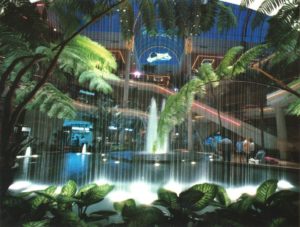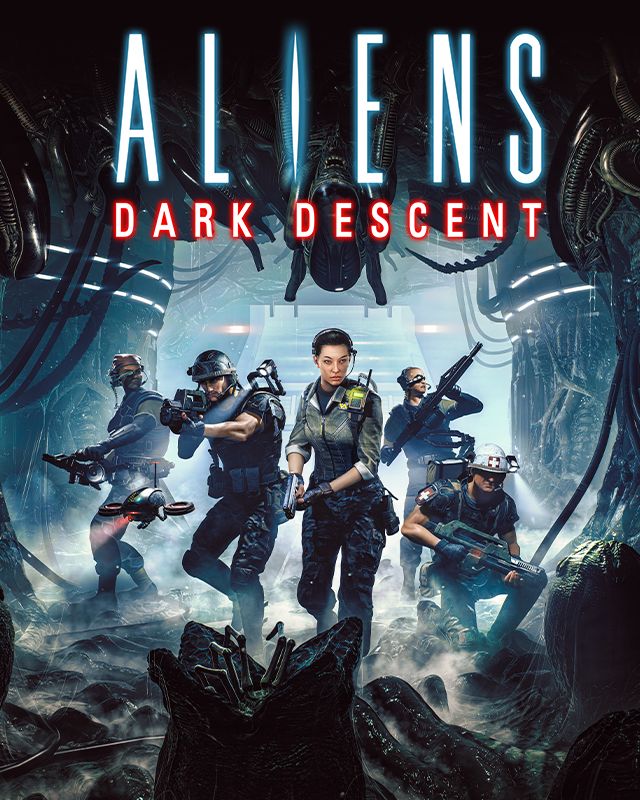
Interview
Coming out of the walls to talk about the music Of Aliens: Dark Descent With Composer Doyle Donehoo
Written By: Gbanas92
Published On: September 12th, 2023
a stand-up fight, Or Another Bug Hunt?
The Alien franchise has had its up and downs. This is particularly true when it comes to games. First we had the reboot of the Aliens vs. Predator series by Rebellion. Then, of course, the utterly disastrous release of Aliens: Colonial Marines. In the ensuing years, things have gotten appreciably better, thanks in large part to Creative Assembly‘s immaculate Alien: Isolation, one of the greatest horror games ever created. This was followed by a safe, if unimpressive third-person shooter in Aliens: Fireteam Elite. And now we have the great tactics games from Tindalos Interactive, Aliens: Dark Descent. While the quality of this bunch of Alien titles has fluctuated wildly in quality, one thing that never wavered was the music. Alien titles always bring with them incredible soundtracks, and Aliens: Dark Descent is no exception. Which is why we’re excited to have had the chance to sit down with the game’s composer, Doyle Donehoo, to discuss what went into the soundtrack’s creation.
Over the course of this conversation, we’ll talk about the legacy of music in the Alien franchise, what role in-game environments have on how to interpret the music, and how Doyle’s previous work on Warhammer titles has helped with crafting this score. Let’s dive in!
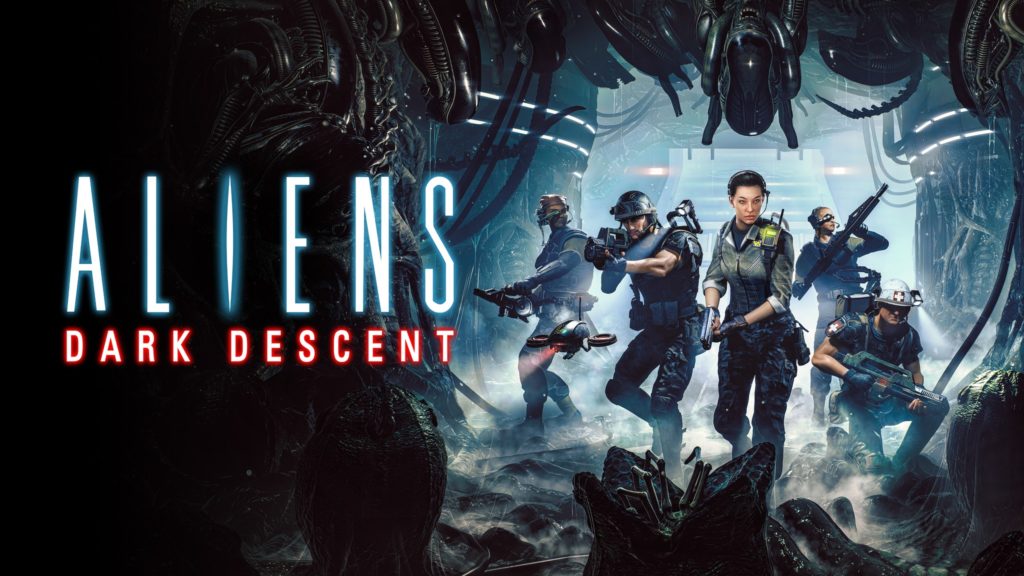
Utopia District: Thanks for taking the time to do this Doyle! Let’s hop in! When it came to influences from the films of the Alien franchise, how challenging was it to choose moments to reprise specific composers?
Doyle Donehoo: The game featured three distinct environments: space-ship, colony, and industrial. The game developers, [Tindalos Interactive] and particularly I, wanted to strongly immerse the players in those environments from the movies so they could feel very connected to the feel of the Alien franchise. In particular, to the first three movies. That was the foundation. From there, we could build on that to deliver an experience that was at once familiar and unique. So, for me, the environments dictated which legacy composers I should be most influenced by. For example, the space-ship environment pointed towards [Jerry] Goldsmith, who with Alien profoundly set the musical language for the Alien universe. For me, all of the Alien music springs from that. So, the environments and the legacy composers associated with them set the direction of the music in the game.
UD: Using Jerry’s score as a jumping-off point makes sense. In their distinct ways, Goldsmith, James Horner, and Elliot Goldenthal all crafted masterpieces (to say nothing of the contributions of John Frizzell, Marc Streitenfeld, Harry Gregson-Williams, Jed Kurzel, Harald Kloser, and Brian Tyler). For my money, Alien3 has the greatest film score of all-time!
DD: Yes, the first three movie composers made the greatest contributions to the Alien franchise. Alien3 has some great musical moments I am really attached to, but that score would not have been possible without the first two. I did an homage modernizing particular cues from the movies, in particular Alien3. It is unlikely it will be released, but it was satisfying to do.
UD: How did you go about choosing when to honor these film scores and when to deliver original material in the game? Was it easy to pick those moments? Challenging?
DD: While I utilized Alien orchestral sounds from the movies (bassoon for example), we delivered original melodic material throughout. The sounds and the Alien musical language are what bring the feel and emotion of that Alien environment, while still delivering original material. It was not so much a challenge as doing the obvious when honoring a venerated franchise such as Alien. We wanted the fans to get a satisfying and original Alien experience.
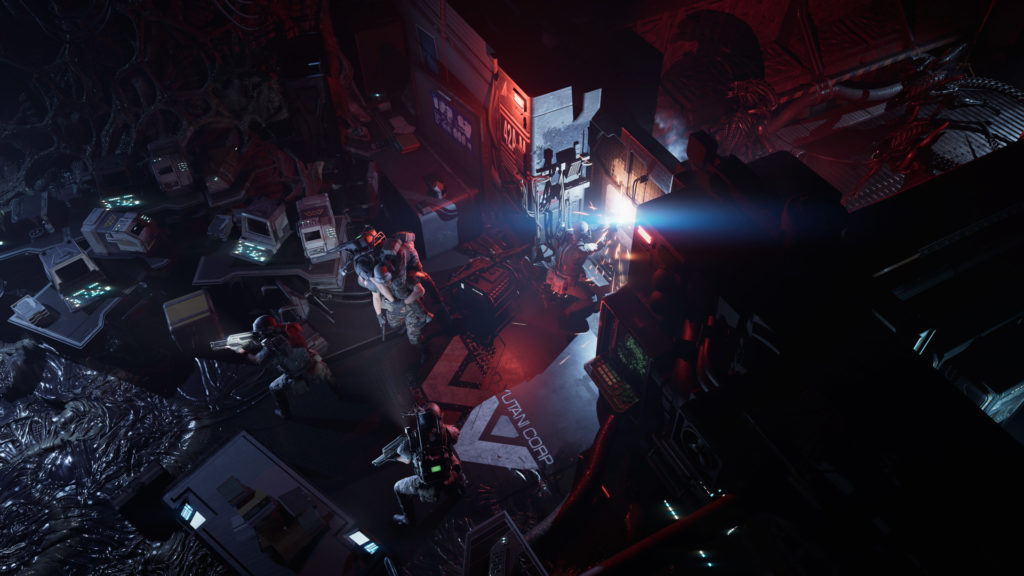
UD: Speaking of the Alien experience, the Xenomorph is one of the most recognizable icons of horror. But apart from horror, what kinds of influences did you draw from? Movies, books, television, etc. Or anything outside of the world of entertainment even.
DD: Well, mostly all of the above. For Alien in general, I am a big fan. When Alien and Aliens first came out, I saw them numerous times in theaters, and countless times on VHS, DVD, and Blu-ray. I collected all available CDs, records, books, programs, magazines, art collections, buttons, newspapers, and all things Alien I could find. I have done many Warhammer scores, which cover everything from horror to military actions and many other things as well. I have read hundreds of books from all genres and seen your basic truckload of movies. I like to think my whole is greater than the sum of my influences.
UD: Like that myriad Alien collectibles you accumulated through the years, the world of the Alien films includes a wide range of aesthetics and styles, bringing with them the opportunity for a broader musical palette as well. The gothic elements, the industrial, the organic & alien. These could all appear incongruous at first, but they harmoniously coalesce in the world of Alien. Are there any genres or types of sounds you brought into your music that would appear equally incongruous at first blush?
DD: The first three movie scores are almost ancient history now, and I have sounds and instruments that were not available then, and I used a lot of them in my score. I go through thousands of new sounds and instruments every year and take notes. But there are certain sounds and instruments that speak to me in a particular way, and when doing a project like Aliens: Dark Descent, I use them because they sound “Alien”, and fit what I am doing. Only certain sounds will work. Still, you have to try seemingly incongruous things and see if they work, and maybe open new lines of sonic possibilities.
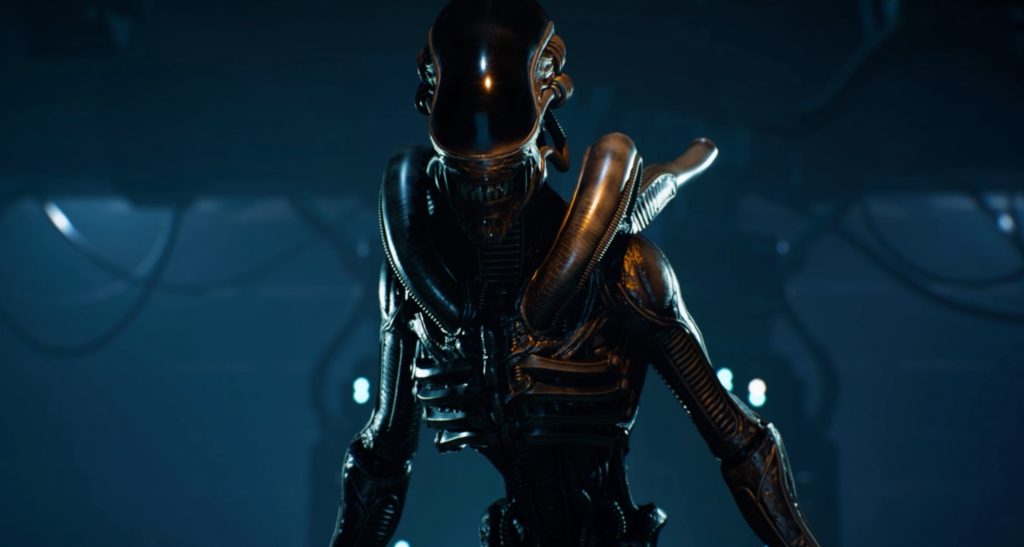
UD: In the Alien films, the music plays such a monumental role. In particular, they excel at presenting the duality of the human elements of the world alongside the hostile, alien realm of the xenomorph. But, here in Dark Descent, we have human/xenomorph hybrids, completely eliminating the line separating these two disparate elements. Musically, what kinds of challenges did this pose? Did it dictate a change in how you approached the game at all, did you have something in mind right away for this very outcome, or did it require a bit more reflection?
DD: Yes, in the Alien films, the music plays a monumental role, which is one of the reasons it appealed to me so. I was freaking out within the very first scenes of Alien, mainly because of the music. It really spoke to the frailty of humans on so many levels.
As for the forms of humanity in the game, I really didn’t have to deal with the nuances of human/xenomorph hybrids and other details. I had 60 minutes to establish the various environments while writing for exploration, discovery, story-telling, minor encounters, major encounters, defeats, success, failure, and a variety of levels of intensity. I think all that organically covered any special situation. And this hour of music had to cover for around 40 hours of game-play.
UD: And as something of a part two to the above, how did the gameplay style of Dark Descent influence the way you crafted your score? A tactics game is going to be considerably slower than say, an FPS. Did you do anything musically that sort of matched that irregular rhythm to gameplay that a tactics title can provide? Jump around a bunch with signatures? Rapidly moving between modes? In what ways did you try to “get nuts” with the music?
DD: Yes, Aliens: Dark Descent is very different than a FPS. You exchange constant combat for various degrees of tension and desperation, and THEN all-out combat for a time. I have heard real-world combat described as hours of boredom and waiting around interspersed with periods of sheer terror, and I think the game is more akin to that. So musically speaking, the music has to flow and evolve. A lot of the music was composed in large chunks covering various moods, and delivered in such a way it could be easily edited to match the various scene changes. Also, it was mostly written in the same key, so it was easy to edit together different parts. Remember, it is a limited amount of music spread over a long time.
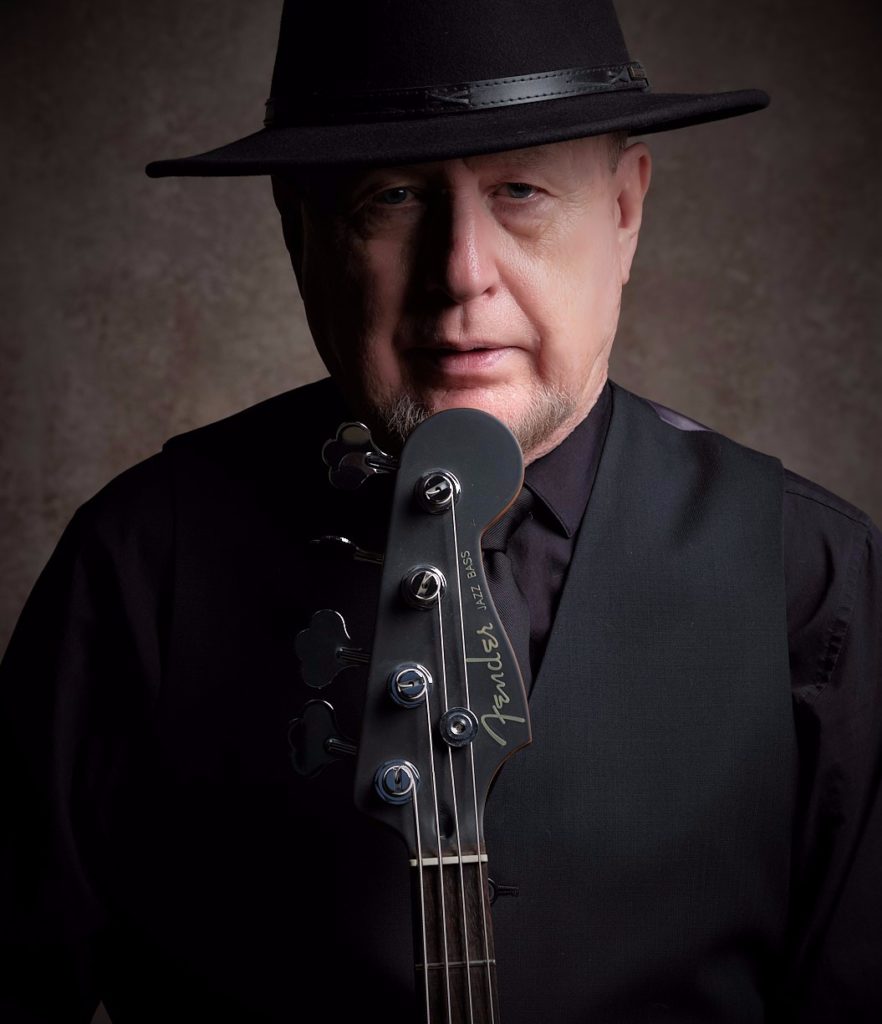
UD: So you mentioned Warhammer earlier which I was planning on bringing up. You’ve been involved with Warhammer 40,000 for many a year. But the worlds of Alien and 40K offer different kinds of science fiction. How does this difference in universe alter your approach to composing? What would you consider the key differences?
DD: Actually, there are a lot of similarities between Aliens and Warhammer 40K. In my opinion, Aliens influenced the Warhammer race of Tyranids, who are insectoid versions of Aliens on steroids and mutated into many different forms. And they also travel in masses, and some forms of Tyranids can rip Space Marines into tiny bite-sized pieces. When composing Warhammer music, the Alien scores were often referenced. And now we have Colonial Marines facing off against swarms of Aliens, so there is that similarity. The major difference for me is that the Alien is the ultimate ambush hunter and stealth and sneaking around plays a bigger part in Alien franchise games and Aliens: Dark Descent. FPS’ are often constant action and combat, so there is not a lot of room for mood changes. However, for Aliens: Dark Descent there is a lot more nuance and changes of mood. There is story-telling and discovery for example. I didn’t want every Alien encounter to be an excuse for over-the-top epic music unless it was THE main encounter with something very important. And I worried about the music interfering with the sound effects and dialog. You can heighten the intensity of a scene without overwhelming it with music. So, the music has an arc as things work towards a crux, where I can “get nuts”.
UD: And to close things out, I always like to end my first-time interviews with the same question because the stories can be fun to hear! To that end, what brought you to gaming? How did you end up finding yourself making music for games?
DD: Well, that is a very long story indeed. I have a music, art, graphics, and engineering background. I used to write my own music software, and I have been involved with music all my life. But to make a long story short, when video games first came out starting with DOOM, I knew I wanted to be involved in video games in some way. Computer technology finally reached a point where meaningful music could be created, so I started to build my studio and learn traditional orchestration. I also scored some minor games. Then, at E3, I saw a rolling demo of Warhammer 40K: Dawn of War, and I knew that was exactly what I wanted to write music for. What followed was a lot of begging until I got a chance to audition for Warhammer 40K: Dawn of War II, and the rest, as they say, was history.
UD: Thanks so much for taking the time to do this Doyle!
DD: No problem!

